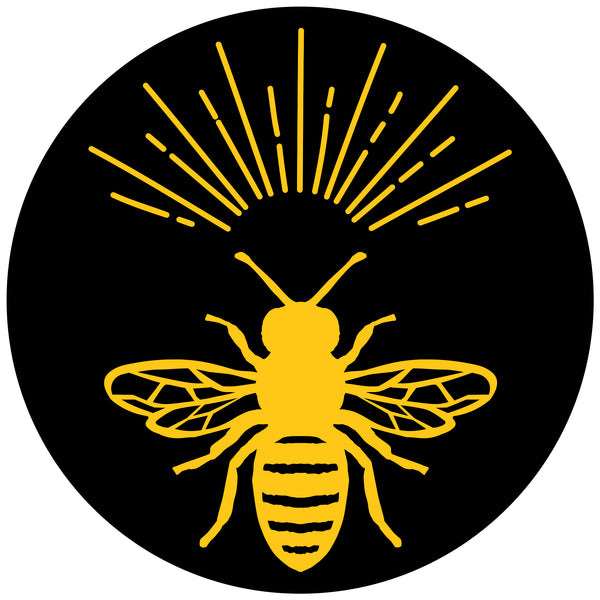Bee pollen, often referred to as nature's superfood, is a remarkable substance that has been gaining attention in the health and wellness community. This golden dust, collected by hardworking bees from flowering plants, is not just food for the hive - it's a nutritional goldmine for humans too. Let's explore the fascinating world of bee pollen and uncover its potential benefits for your health.
What is Bee Pollen?
Bee pollen is a mixture of flower pollen, nectar, and bee secretions. It's the primary food source for young bees and is packed with over 250 different nutrients, including vitamins, minerals, proteins, and antioxidants.
A Nutritional Powerhouse
Bee pollen is incredibly nutrient-dense. It contains:
- Proteins and amino acids
- Vitamins (A, B-complex, C, D, and E)
- Minerals (calcium, phosphorus, magnesium, potassium, and iron)
- Antioxidants (flavonoids and carotenoids)
- Enzymes
- Fatty acids
Health Benefits of Bee Pollen
1. Antioxidant Protection
Bee pollen is rich in antioxidants, including flavonoids and carotenoids. These compounds help protect your cells from damage caused by free radicals, potentially reducing the risk of chronic diseases and slowing the aging process.
2. Heart Health Support
Studies have shown that bee pollen may help lower cholesterol levels, a major risk factor for heart disease. It may also improve blood flow and reduce the risk of blood clots, contributing to better cardiovascular health.
3. Immune System Boost
The vitamins, minerals, and antioxidants in bee pollen are essential for a well-functioning immune system. Research suggests that bee pollen may enhance the immune response against infections and diseases.
4. Anti-inflammatory Properties
Bee pollen has demonstrated anti-inflammatory effects in various studies. This property could potentially help in managing chronic inflammatory conditions and cognitive decline.
5. Liver Protection
Animal studies have shown that bee pollen may have hepatoprotective properties, potentially safeguarding the liver from toxins and supporting its vital functions12.
6. Stress Reduction
Some research indicates that bee pollen can boost blood circulation to the brain, potentially strengthening nervous system functions and helping to alleviate symptoms of stress and mental fatigue.
7. Menopausal Symptom Relief
Some studies suggest that bee pollen may help ease symptoms of menopause, offering a natural alternative for women seeking relief.
8. Weight Loss
Bee pollen is low in calories but rich in nutrients, making it a good addition to calorie-controlled diets. A 2-teaspoon serving contains only 40 calories. Bee pollen contains phenylalanine, an amino acid that may act as a natural appetite suppressant.
How to Incorporate Bee Pollen into Your Diet
Bee pollen can be easily added to your daily routine. Try sprinkling it over yogurt or oatmeal, blending it into smoothies, or using it as a topping for avocado toast. The recommended dosage for adults is typically 20-40 grams or 3-5 tablespoons per day.

A Word of Caution
While bee pollen is generally safe for most people, it's important to exercise caution if you have allergies to pollen or bee stings. Always consult with a healthcare professional before adding any new supplement to your diet, especially if you're pregnant, nursing, or taking medications.
Bee pollen is truly a gift from nature - a tiny, golden granule packed with nutrients and potential health benefits. As research continues to uncover its secrets, bee pollen stands as a testament to the incredible synergy between bees, plants, and human health. So why not give your health a buzz and explore the benefits of bee pollen for yourself?
References:
-
WebMD. (n.d.). Health Benefits of Bee Pollen. Retrieved from https://www.webmd.com/diet/health-benefits-bee-pollen
-
Healthline. (2017). 8 Benefits of Bee Pollen: Nutrition Facts and More. Retrieved from https://www.healthline.com/health/bee-pollen-benefits
-
Nebraska Medicine. (n.d.). Top 5 benefits of bee pollen supplements. Retrieved from https://www.nebraskamed.com/health/healthy-lifestyle/primary-care/top-5-benefits-of-bee-pollen-supplements
-
Thakur, M., & Nanda, V. (2023). Bee Pollen as Functional Food: Insights into Its Composition and Therapeutic Properties. Nutrients, 15(5), 1218. https://www.ncbi.nlm.nih.gov/pmc/articles/PMC10045447/
-
Rzepecka-Stojko, A., Stojko, J., Kurek-Górecka, A., Górecki, M., Kabała-Dzik, A., Kubina, R., Moździerz, A., & Buszman, E. (2015). Polyphenols from Bee Pollen: Structure, Absorption, Metabolism and Biological Activity. Molecules, 20(12), 21732–21749. https://www.ncbi.nlm.nih.gov/pmc/articles/PMC8230257/


